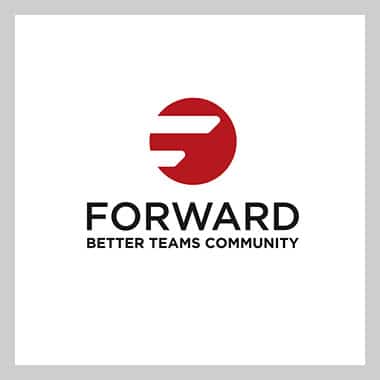Guest Blogger: Alexandra (Alex) Suchman
Games have long been part of the human experience.
Over tens of thousands of years, people have used games as a way to have fun, pass the time, or make tedious tasks more bearable. Who hasn’t played the old ‘counting license plates game’ on family road trips?
More recently, research has shown that games can be a valuable tool for learning purposes. Whether it’s acquiring and practicing new skills or increasing retention of new knowledge. Much of this research is focused on how games improve learning at the individual level. But games are also a great way for teams to learn and grow together! There are many different levels of learning and growth that can come from playing games with your colleagues, clients, collaborators, or any group with whom you communicate regularly.
When it comes to games in the workplace, having fun is just the tip of the iceberg. The deeper you go, the greater the potential impact for real change.
Games are a great way to spend time together and get to know one another outside of the pressures of work.
With the high stakes of tasks and deadlines suspended, we’re more able to relax, immerse ourselves in fun, and enjoy thinking about less-serious topics for a little while.
Example: Imagine you are playing a game of charades with your immediate team, and your boss has to act out being an elephant. In that silly moment, position titles and formal hierarchies don’t matter. Moreover, the whole team can simply laugh together and enjoy each others’ company in the moment.
Games create a shared experience for a group of people.
Shared experiences are the source of collective memories and reference points. These help team members better understand and communicate with one another. This, in turn, leads to a stronger team identity and higher levels of trust.
Example: In acting like the elephant, your boss makes a funny gesture to indicate that the elephant is hungry. That gesture becomes an inside joke within your team. Later on, you start using it to signal to one another when someone is taking a lunch break. Not only is the gesture an effective way of communicating, it also makes everyone smile as they remember the charades game.
Games give you insights into how people feel, think, and act.
Every game involves a task or set of tasks within a confined set of rules. When you play games at work with others, you can observe how different people feel, think, and act under the same circumstances. By pairing gameplay with reflective discussions about each person’s unique experience within the game, you can learn about each other’s strengths, motivators, areas for growth, problem-solving styles, and more. This information helps you better understand how to work and communicate with others successfully.
Example: One person on your team had never played charades before, and was confused by the directions at the beginning. After several people tried to explain the rules to him, he finally suggested that the group do a few practice rounds to observe and ask questions until he got the hang of it. A few rounds in, he was the star of the game. Now that you know this particular team member learns by observing, rather than hearing the instructions. In addition, you can make sure to use more experiential learning approaches when orienting him to new tasks or projects.
Games provide an opportunity to observe how a team works together.
Once you understand the characteristics and team dynamics at the individual level, you can zoom out and reflect on how the team as a whole performs within a game. How do the current team culture and work environment affect team performance? How do existing relationships, power dynamics, and perspectives show up during the game, for better or worse? In what way do they show up in real-life work situations? The team can use this information to build more mindful and supportive cultures and work environments.
Example: During charades, you noticed that the newer team members are reluctant to participate fully. They are deferring to more senior team members in trying to guess the words being acted out, and express they are embarrassed to volunteer to act words out because they don’t want to “look stupid” in front of their supervisors. You realize that this is the first time they’ve interacted with the team management outside of formal team meetings in the 3 months they’ve been on board. Although management considers the team to be very friendly and have an open-door culture, you realize that this culture characteristic is not always evident in practice. You decide to add 1:1 informal coffee chats with the team leaders as part of the new hire onboarding process.
With a keen eye toward self-awareness and reflection, games at work can be a meaningful learning and growth experience. For a list of games that can be played with remote teams, check out this list from MarieClaire.com.
To learn more about the value of play in the workplace and how to use games to build human-centered, resilient team cultures, please visit the Barometer XP website at https://www.barometerxp.com/.
About the Author
Alexandra (Alex) Suchman is CEO and Co-founder of Barometer XP, a company that creates games designed to spark insightful conversations about how team members can better communicate and collaborate toward shared goals. Alex leads game sessions that help individuals and teams explore self-awareness and make meaningful, sustainable culture changes.
Prior to Barometer XP, Alex founded AIS Collaborations, a consulting firm that helped small businesses reach new levels of success through simple systems, stronger organizing techniques, and better planning. She has an MPP from George Washington University, a BA in psychology from Colby College. Also she is certified as both a Project Management Professional (PMP) and DISC coach.

